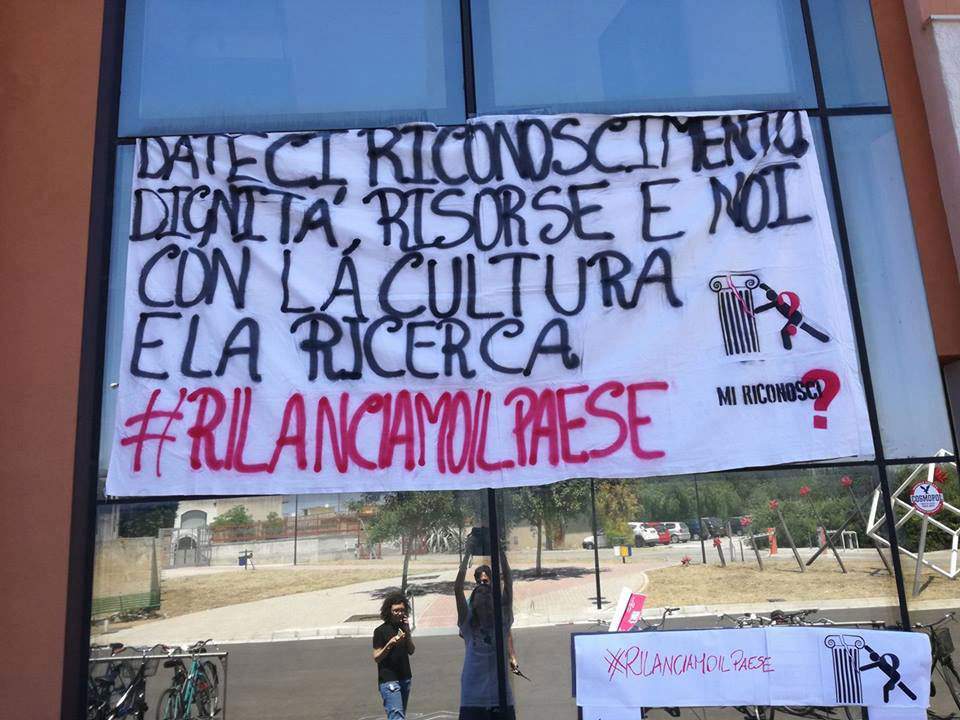Work must be paid for: the mobilization of cultural workers
Precarious workers, students, researchers, academics, staff of the Superintendencies and Museums, cultural heritage professionals and politicians all united for the mobilization “Recognition, Dignity, Resources for Culture, and there #RilanciamoilPaese,” launched by the movement “Do you recognize me? I’m a Cultural Heritage Professional,” which has been involving squares and cultural venues throughout Italy since yesterday, May 24.
Great participation both online and at the garrisons to protest against a culture that barely survives on the skin of poorly paid professionals or volunteers used as patches. Enough with volunteerism and civil service used as a tool to underpay.
The purpose of the mobilization is to demand investment in culture on par with other European countries, to stop the turnover freeze, to hire the necessary number of civil servants to allow the ministry to function (3,000, according to FP-CGIL estimates), and to produce laws that finally regulate the cultural heritage professions, preventing unfair competition from those without training and skills.
Also supporting the protest were personalities such as Rita Paris, director of the Appia Antica Park, Andrea Camilli, president of Assotecnici, Tomaso Montanari, Paolo Liverani, and the Archaeologists of Public Employment.
Andrea Incorvaia, activist of the Mi Riconosci? movement from the presidium in Pisa says he is satisfied: “It is incredible to have managed to unite all these forces, political and social, toward a common goal, as can be seen from this presidium, attended by ministerial officials, precarious workers, students and politicians. While Franceschini brags about numbers due to an international trend of which we are only reaping the crumbs, the Marche’s heritage is in a state of total abandonment after the earthquake, the Superintendencies keep open only thanks to the time given by officials, who work well beyond their hours, and for professionals the norm is to choose between a terribly underpaid job, changing jobs, or abroad. This at a time when Culture is the sector that, in Italy, has felt the crisis the least and continues to grow!”
Daniela Pietrangelo, another activist who has worked in Milan’s museums for years without ever having seen a contract says, “The work is there, it is obvious, the economic trend of the sector is positive, but they want to force us to work for free, with infamous laws like the one that allows museums and libraries to ”hire“ volunteers for vital and professionalizing roles. There is no more time for divisions, we must make it clear to our colleagues and the public that this is a counterproductive and crazy policy, but that it can be, it must be changed!”
 |
| Work must be paid for: the mobilization of cultural workers |
Warning: the translation into English of the original Italian article was created using automatic tools. We undertake to review all articles, but we do not guarantee the total absence of inaccuracies in the translation due to the program. You can find the original by clicking on the ITA button. If you find any mistake,please contact us.



























